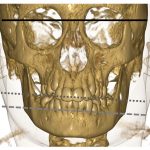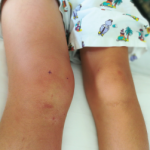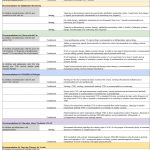The FDA is reviewing supplemental Biologics License Applications for golimumab to treat polyarticular JIA and juvenile PsA…


The FDA is reviewing supplemental Biologics License Applications for golimumab to treat polyarticular JIA and juvenile PsA…

A study found resident memory T cells may mediate inflammatory arthritis and trigger flares in specific joints, suggesting local depletion of these cells could be a therapeutic strategy…

Marinka Twilt, MD, MSCE, PhD, & Peter B. Stoustrup DDS, PhD |
Juvenile idiopathic arthritis (JIA) can affect all joints, including the temporomandibular joints (TMJs). For a long time, the TMJ was a “forgotten” joint in pediatric rheumatology, although Sir Frederick Still did comment on a small mandible in his first case series on juvenile arthritis in 1897. In recent years, more attention has been given to…
Marilynn Larkin |
NEW YORK (Reuters Health)—For young people with juvenile idiopathic arthritis (JIA) who don’t achieve disease control, switching to a different class of biologic is unlikely to be beneficial, researchers say. The observational study yielded no evidence to support or refute the 2015 National Health Service England guidelines, which recommend switching most patients to a second…

ATLANTA—Managing pediatric patients with rheumatic disease involves special considerations, such as developmental concerns and physiological traits that may affect dosing of medications, according to two experts. During a session at the 2019 ACR/ARP Annual Meeting, Courtney Kremer, ARNP, a pediatric nurse practitioner at the University of Iowa Stead Family Children’s Hospital, Iowa City, and Jessica…
Arthritis Care & Research |
Pregnant women with inflammatory arthritis may have an increased risk for preterm delivery. New research examined the risk of preterm delivery and other pregnancy complications in women with RA and JIA vs. healthy controls…

A five-year study in patients with juvenile idiopathic arthritis-associated uveitis found drug-induced disease remission did not persist once adalimumab was stopped after long-term treatment.
A group led by Sarah Ringold, MD, MS, assistant professor of rheumatology at Seattle Children’s Hospital, has developed a new guideline intended to provide recommendations for the treatment and monitoring of children with juvenile idiopathic arthritis (JIA) manifesting as non-systemic polyarthritis, sacroiliitis or enthesitis.1,2 Key Updates The new recommendations appear in both Arthritis & Rheumatology…

As soon as pediatric patients are diagnosed with juvenile idiopathic arthritis (JIA), they should also be screened for uveitis, says ophthalmologist Gary Holland, MD. Otherwise, the University of California, Los Angeles, provider says, “Kids who are diagnosed with JIA may not come to an ophthalmologist until they have vision-limiting complications.” Uveitis is the most common…

During a five-year trial of canakinumab, patients with systemic juvenile idiopathic arthritis taking canakinumab showed progress toward clinical remission and glucocorticoid tapering…